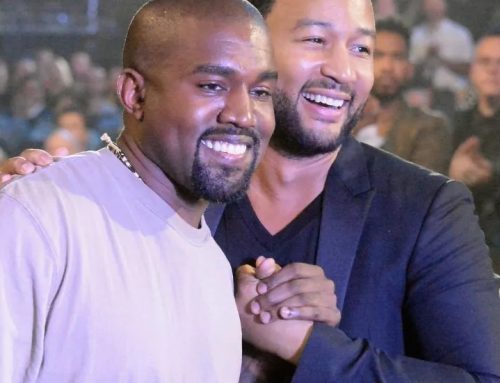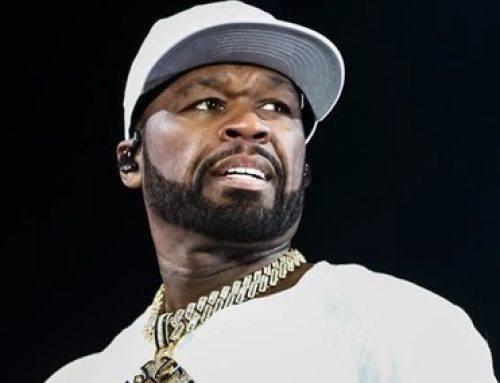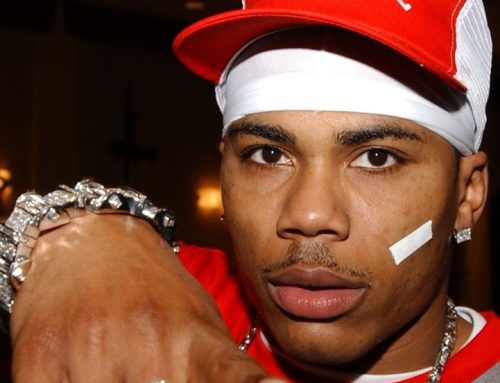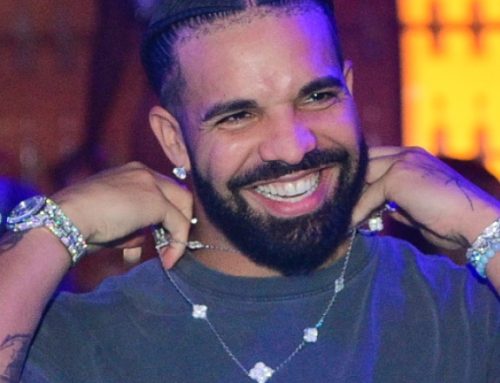OnThursday (May 26), the long-awaited Hulu original documentary Look At Me: XXXTENTACION arrives for ardent supporters of the 20-year-old rapper, who instantly became a voice for troubled youth through his boisterous raps and unbridled passion.
Although his Billboard wins — including his Billboard 200 chart-topping sophomore album ? — and artistic temperament were beloved and celebrated by his fanbase, XXXTENTACION’s legal pitfalls and problematic behavior were fuel for media publications who covered his issues extensively. During his career, he accumulated several charges from a pair of incidents involving robbery, assault with a deadly weapon, witness tampering, false imprisonment, and aggravated battery of a pregnant woman. By 2018, he faced 15 felony charges stemming from a 2016 relationship involving domestic violence. Though he savored his cultural role as the villain, Look at Me showcased X looking to change his ways and lead a straight path, before being shot and killed in an armed robbery attempt.
“For someone struggling very openly, to put that on a stage and to offer it up for public consumption, I think is a very special type of courage and service that artists do,” director Sabaah Folayan tells Billboard. [X] was open about his issues. He didn’t necessarily win his battle before we lost him, but he gave us a space to talk about mental health and his internal struggle.”
Folayan spoke to Billboard about the making of Look At Me: XXXTENTACION, X’s influence on the youth, and what he would have been like as a father.
What made you decide to document X and tell his story?
I was invited to this process by The Fader and his mom. They partnered up, had gathered footage and already intended to tell the story — they were [just] looking for a director to sort of bring it home. When I first met with them, I was very clear that I’m an activist, I’m a feminist, I believe that women come forward at great personal risks — so I tend to assume that they’re telling the truth, and that if I was going to tell this story, it’s going to be the good, the bad and ugly.
I sort of expected that it would be just another interview, and we’d all move on and they’d find someone who’s a fan. I was actually pretty surprised that they were open to that approach. I had a long conversation with Cleo [X’s mom] about what her son’s legacy meant to me, and what I saw in him was someone that was struggling very openly. He was open about his issues, and he didn’t necessarily win his battle before we lost him but he gave us a space to talk about mental health and about those internal struggles.
He really raised the flags to the young people who were struggling and suffering. The feelings of isolation, the feelings of being suicidal, the feelings of having no one and these feelings have are so, so common in people who are extremely young and that’s what X pointed out. I thought that it would be a shame to let that insight go by the wayside because we weren’t able to condemn his behavior and then continue to look deeper into the story.
You mentioned the importance of detailing “the good, bad and ugly” of X. Why was it important to highlight the “ugly,” even when it became disturbing or gruesome?
There were a lot of reasons. First of all, I think I’ve been able to gain a specific amount of trust from the people who are familiar with my work. That trust is really, really important to me — and I think that audiences are intelligent, and I think they know when you’re being honest and when you’re not. Just for my own reputation, it was important to me to protect the trust that I have with the public.
The other part was for his family, and those people who saw him towards the end of his life, and saw the ways he transformed. They really wanted this to be a redemption story. The conversation I had with them was, “If you want it to be a redemption story, then you have to show what it is he’s being redeemed from. It’s not enough to just talk about his positives, you have to show the full journey.” And I’m thankful that they were able to understand that. It took a lot of courage for them to face and participate actively in grappling with those demons.
You highlighted the story of X’s relationship with his ex-girlfriend Geneva Ayala, and the domestic abuse allegations behind their journey. As a woman of color, how hard was it to hear some of the details of Geneva’s story and putting that onto the forefront for public consumption?
It was extremely difficult. Well, one thing that’s funny is, I never asked her to relive and re-walk the physical abuse, because she had given a sworn testimony under oath. What I felt that I needed to understand was more about the relationship, and more about the aftermath, because that was the aspect that had been documented the most.
So what ended up being important to me about Geneva’s story was the way in which it was like this messed up domino effect, where the media found out about the allegations — and then trying to be ethical, stopped reporting on Jahseh or reported negatively on him. Then, this huge fanbase sees this negative attention, and they’re blaming Geneva. So now Geneva — who’s only really come forward for her safety — is caught in the crossfire between the mainstream media and this fanbase. Now she’s facing this harassment from the internet, and she faced harassment in her own workplace. So the abuse she experienced is actually compounded by the collective response that happened.
It was really important for me to show that, because I think sometimes when we’re trying to be ethical as storytellers, we’re worried about, “How do I look in the eyes of history?” But not a lot of people asked: “What does this young woman need? How can I be helpful in the situation?” So, hopefully, this approach is an encouragement to people to go past, “How can I be right?” and ask, “How can I be helpful? How can I serve?”
In the film, we saw a turning point from X, and him looking to change his ways and try to lead a straight life. For you, when did that turning point take place?
It’s funny, because a film has to make things look really linear and really neat. I think he was in a constant tug-of-war between his better angels and the things that were gaining him attention. This is the thing you have to realize is: All of those things he was doing that we hated — up until the moment where it became this violence against Geneva, which hit this very specific cultural note in the moment of Me Too and the moment where we’re cracking down on violence against women — he does this thing and gets cancelled. But everything up until that: All of the violence, all of the fighting on camera, all of these different things, were only building and building his reputation. He was getting positive feedback for this behavior.
So I don’t think it’s a linear thing with the turning point, but that he was struggling the whole entire time, and there were all of these different influences. That moment of Me Too and that moment of reckoning with violence against women is what finally gave him a negative backlash. It also propelled him even further to fame. I just think about being 17, 18, 19 years old and just making any decisions — let alone, figuring out what you represent in the eyes of millions — it’s so complex, and I think what I want people to focus on is the way in which our feedback as a collective has shaped a person’s trajectory and influence as a representative. Because that’s who he was — a representative of this generation. We have influence over that by the way we support things and by the way that we don’t. I think we can be more careful and more caring with that influence.
Why do you think he enjoyed playing the role of the villain at the early stages of his career?
I think it’s kind of this intuitive thing that we all understand that’s someplace in our heart. It’s this ability to cross boundaries, do what you want and have this unbridled energy, let your aggression off. It’s a pressure valve. Sometimes, we watch somebody do those things that we could never do in public, we can never say, or maybe we had these moments of anger that we don’t get to express. So he was like a pressure release for his audience. He was actually externalizing these frustrations that are very human emotions.
It’s just that most of us have the discernment and the judgement to not ever act on those feelings — or maybe it just doesn’t get as big inside of us, because our mental is set up differently. But I think that you can look across TV, you can look across culture, [and see how] we’re collectively fascinated by the villains. They’re very, very marketable, and if nothing else, he was definitely a marketing genius.
Why do you think X and his message resonated so much with kids, despite his being the villain and anti-hero?
I think the closest comparison in terms of the impact of his death specifically is Kurt Cobain, because he was sort of this representative for the downtrodden, the people who were experiencing inner turmoil. I think [he resonated with people] because our country is really built on a lot of falsehood. You go to work, you put a face on, and pretend to be one thing. You pretend to be something for your partner. A lot of pretense is normal in our society I think — and when you’re young, if you still remember it, it doesn’t always make sense to you as a young person. You haven’t learned to be accustomed to that.
So I think young people are going through a lot of turmoil, and I think they’re looking out to a world where they don’t know where they fit into it, they don’t know what role they’re supposed to play, they haven’t learned how to silence their instincts, their inauthenticity — and then they experience it as pain and as misery. He was honest about that, and I think that we as older people are overlooking the severity of it. It’s really a situation that has to be addressed and treated with urgency, because these are the people that’s going to be inheriting the next generation. These are going to be the future heroes.
X’s longtime producer John Cunningham said in the documentary that he felt Jahseh related more with children than people. What kind of father do you think X could have been?
I think he would have been an incredible father. I think that having a son would have been the final motivation that he needed to be the best version of himself. His son Gekyume is a name he made up, and it means the next iteration of thought. So he was thinking of his son as the next, better iteration of himself. I think that it would have meant everything to him to be the father figure that wasn’t able to be in his life. I still hold out hope for Gekyume and what his potential is. I hope that this film — he can watch it one day, and understand that his father was doing his best to be the type of father that he needed, and to continue the legacy of self-love and self-care about being a positive person.






